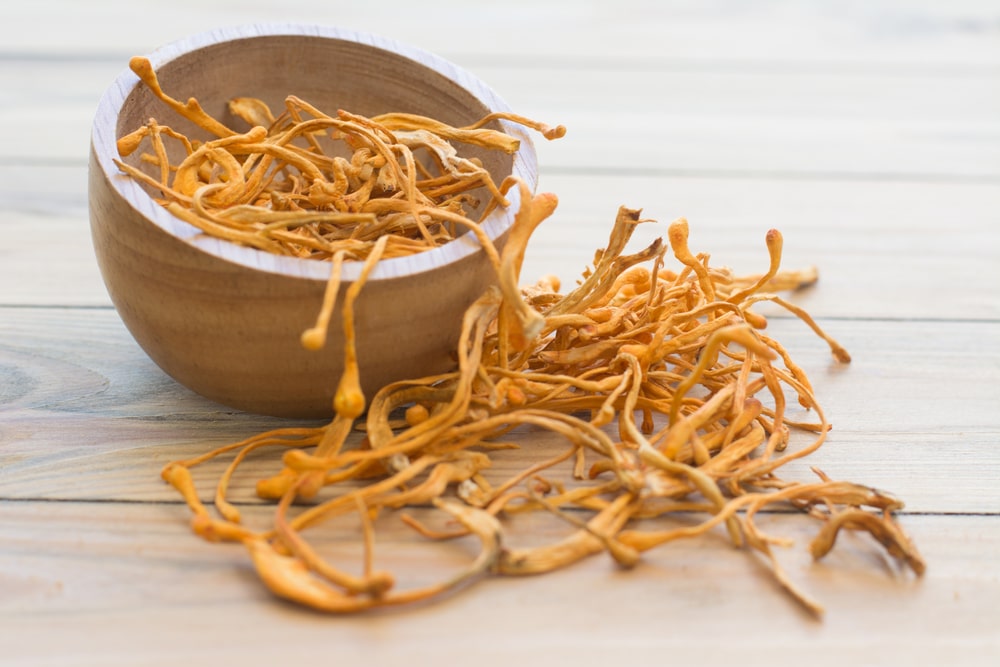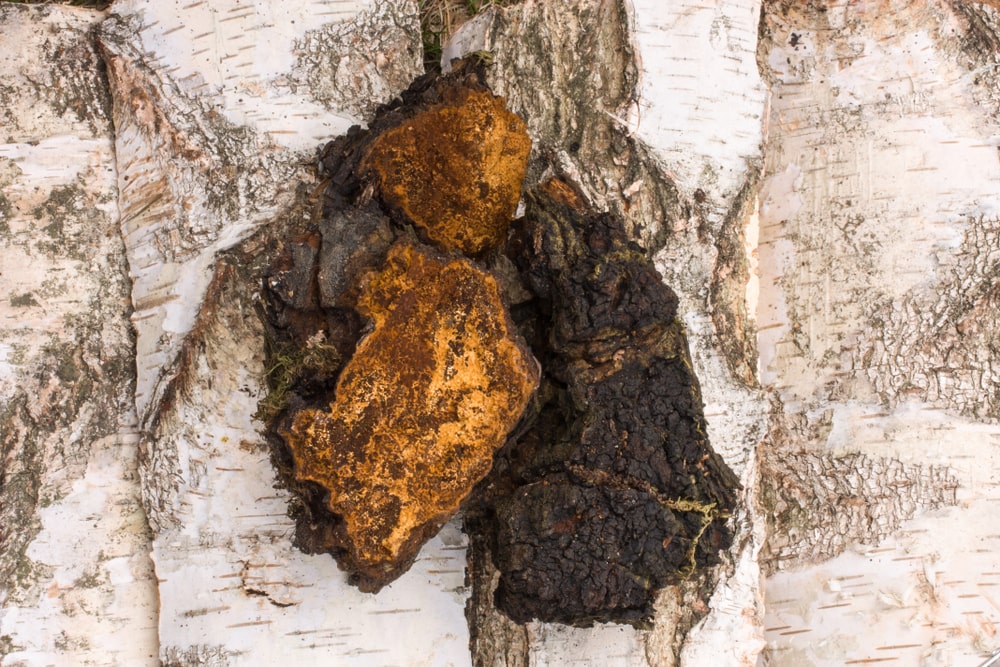Mushrooms for Dogs: Benefits and Uses

Mushrooms are having a moment. They’ve come into high demand for humans recently due to abundant research on their health benefits, and they are showing up in everything from coffees to teas and even chocolates. And they’re expected to continue gaining in popularity, according to a ReportLinker study.
It only makes sense that mushrooms for dogs are also penetrating the market for pets, and you may be considering adding them to your pet’s diet. Plus, you may recognize mushrooms popping up more in your pup’s treats or supplements.
As a pet parent, you may be wondering, are mushrooms good for dogs? And are mushrooms safe for dogs? We did the research on the benefits and potential side effects, and if they’re worth adding into your dog’s diet.
Can Dogs Eat Mushrooms?

“Cultivated mushrooms that are safe for people should usually be safe for dogs when ingested in moderation, or if the animal does not have an allergy to mushrooms or have certain underlying medical conditions,” says Dr. Jerry Klein,veterinarian and chief veterinary officer of the American Kennel Club.
However, wild mushrooms can be toxic—and potentially even deadly—for dogs. If you can’t identify a wild mushroom as 100 percent safe, it’s best to avoid it completely and keep it out of your dog’s reach.
“Wild mushrooms should always be considered dangerous and toxic due to the inherent dangers in the proper identification of wild mushrooms by most people,” adds Dr. Klein.
Mushrooms for Dogs: Benefit and Uses

According to Dr Klein, most research on medicinal mushrooms has been performed on laboratory animals and humans. As such, any benefits when it comes to using mushrooms for dogs are primarily anecdotal.
“There are very few studies on the use and benefits of medicinal mushrooms on dogs and cats, and it has not been approved for the treatment of medical conditions in dogs and cats,” says Dr. Klein.
Mushrooms are high in B vitamins (B2, B3, folate, B5), phosphorus, vitamin D, selenium, copper, and potassium, according to Harvard Health.

In various studies, mushrooms have been found to support immune health and dementia prevention, while also aiding in the prevention of liver disease, kidney disease, and other chronic diseases like diabetes and cardiovascular diseasein humans.
“The consideration and use of medicinal mushrooms should always be administered following a veterinarian’s recommendation who is schooled in their use,” notes Dr. Klein. “Their usage is often as an adjunct with more traditional medical protocols.”
Mushroom Supplements for Dogs

“Pet owners should only consider starting the use of any supplements including mushrooms for the use in dogs after consulting with their veterinarian,” says Dr. Klein. “The use of mushrooms for medical reasons has not been approved by the FDA.”
With that in mind, if you’re interested in adding a mushroom supplement to your dog’s diet, you may notice a few different types of mushrooms in the supplements.
Medicinal mushrooms contain polysaccharides (complex sugars), proteins, and glycoproteins (sugar-protein compounds), which are all active ingredients found in mushroom supplements meant for their anticancer, anti-inflammatory, and immune-boosting properties, according to VCA Animal Hospitals.
Below are some of the most common:
Turkey Tail Mushrooms for Dogs

Turkey tail mushrooms, also known as Coriolus versicolor and yunzhi mushrooms, have been used in traditional Chinese medicine. These mushrooms stimulate the immune system and improve survival rates in human patients with gastric and colorectal cancers, according to Memorial Sloan Kettering Cancer Center.
These types of mushrooms may also be beneficial to dogs with cancer, says Dr. Katie Woodley of The Natural Pet Doctor. “A recent study done by the University of Pennsylvania School of Veterinary Medicine showed that dogs with hemangiosarcoma that were treated with turkey tail mushrooms had the longest survival times ever reported even for dogs that received chemotherapy.”
Reishi Mushrooms for Dogs

Reishi mushrooms are known for their antioxidant properties, which may enhance immune response. They may also have blood pressure-lowering effects and slow blood clotting.
Cordyceps Mushrooms for Dogs

Cordyceps mushrooms are also used in traditional Chinese medicine. Research shows that cordyceps have blood-thinning properties and may also reduce blood sugar levels.
“This type of mushroom has antifungal and antibacterial properties,” says Dr. Woodley. “If you have a pet that is battling allergies or chronic infections, adding cordyceps into their diet may help.”
Chaga Mushroom for Dogs

Chaga mushrooms have been used in folk medicine across northern Europe (they grow on birch trees in cold climates), and have been found to boost the immune system and reduce inflammation and swelling.
How to Prepare Medicinal Mushrooms for Dogs

Mushroom supplements for dogs come in many forms, but the most common is powder that can be scooped and mixed into your dog’s food. Mushrooms are also an addition in certain pre-made snacks and treats.
But if you’re looking to prepare mushrooms for your pet, there are a few things to remember.
According to Harvard Health, mushrooms should be cleaned before being eaten to remove dirt. Rinse them under running water. If cooking mushrooms, keep in mind that high temperatures may reduce nutrients like B vitamins and potassium. If cooking, try simmering them over low heat (compared to high heat) to preserve nutrients.
Mushroom Dosage for Dogs

Check in with your veterinarian before adding a mushroom supplement to your dog’s food. While there may be dosing information on the product itself, it’s best to double check with your vet to ensure that the supplement and the dose is correct, based on your pet’s size and medical history.
For medicinal mushrooms, it gets tricky. “Since the use of mushrooms for medical reasons has not been approved by the FDA in dogs, there are no specific dosing guidelines for dogs and cats,” notes Dr. Klein. “Also, there is no drug interaction information. Medicinal mushrooms should be used cautiously in pets with bleeding disorders, low blood pressure, liver or kidney disease, or immune-mediated disorders. They should be used cautiously in diabetics, animals on anticoagulants, pregnant or nursing pets, as safety has not been established.”
He also adds that pet parents should not use medicinal mushrooms without veterinary monitoring, as prolonged use or high doses may cause harm.
Mushrooms for Dogs: Side Effects

Before you feed your pup mushrooms, you should know that there are some potential side effects and risks.
“Side effects would depend on the type of mushrooms ingested and may include gastrointestinal signs of vomiting and/or diarrhea, wobbliness, or skin rashes,” says Dr. Klein. “More serious side effects could indicate mushroom toxicity and those signs could include seizures, severe vomiting and diarrhea, weakness and jaundice (yellowing of skin or eyes).”
You definitely should talk to your vet before feeding your dog any type of mushroom or mushroom supplement. This is especially true if your dog takes medication, to minimize the risk of harmful drug interactions.
“Vitamins, herbal therapies, and supplements all have the potential to interact with each other as well as with prescription and over the counter medications,” says Dr. Klein. “It is imperative to tell your veterinarian about any medications (including all vitamins, supplements, or herbal therapies) that your pet is taking.”
Where to Buy Mushrooms for Dogs

For raw mushrooms, you can find fresh mushrooms in the produce section of your local grocery store.
As for mushroom supplements for dogs, there are tons of options that are specifically formulated for dogs that are available from pet retailers. Since supplements are not FDA regulated, it’s important to discuss all supplements with your dog’s vet before adding them into their diet.









